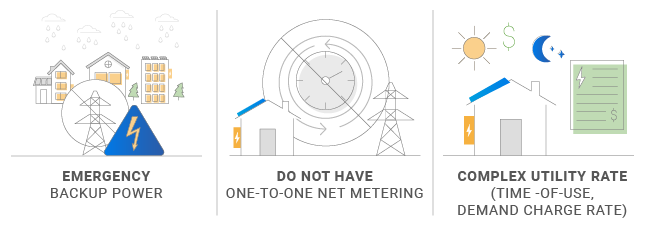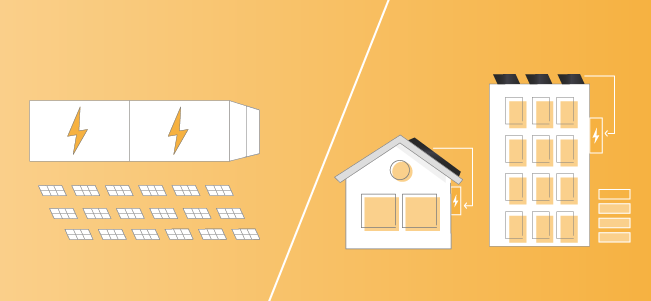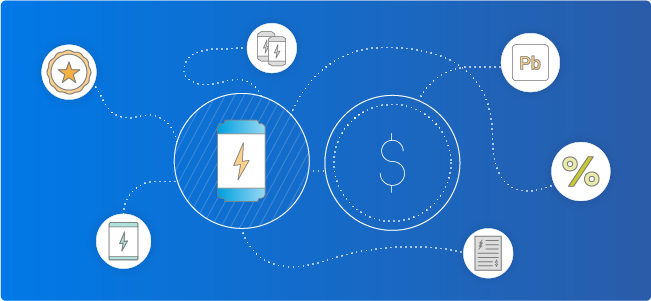At EnergySage, we want everybody to be able to take advantage of the benefits of clean energy, and there are few technologies better suited to increase the adoption of renewable energy than energy storage. At the same time, we recognize that solar plus storage isn’t always the right solution for everyone.
This section is designed to help you answer the question: “Should I get storage?” We’ll run through the main things you need to consider when deciding whether to invest in storage for your home or business.

There are several factors to consider when deciding if a battery is right for you. You'll need to know if your property is a good fit, if you want standalone or solar-plus-storage, and what costs look like, to name a few.
Complex electricity rate systems like time-of-use and demand charges make solar batteries more worth it.
Just like solar, storage costs vary by geography (especially due to local rebates and incentives). Make sure to know exactly what you're eligible for and what your true cost of storage is.
The question of whether you’re a good fit for storage is a touch more complicated than the question of whether you’re a good fit for solar. There are three main reasons why it makes sense to install storage: for emergency backup power, if you are installing solar but don’t have one-to-one net metering in your area, and if you are on a more complex utility rate–such as time -of-use, or a demand charge rate.

To see if you’re a good fit for storage, and if storage is right for you, click here.
Most solar battery systems last for about 10 to 15 years. A battery’s lifespan is influenced by its chemical composition and it’s performance metrics like depth of discharge and round-trip efficiency. Solar batteries have a max warranty of about 12 years, however, ARC offers a 25 year complete warranty on all our installed battery systems.
Nearly every residential-level storage installation in the US is paired with solar. There are a number of co-benefits of installing storage with solar, including the ability to access certain financial incentives and the ability to power your home independently of the grid for longer, but there may be some instances when standalone storage makes sense for your home or business.

To get a feel for the tradeoffs between standalone storage and solar-paired storage, check out click here.
Although most people install storage for the resilience benefit, as opposed to the financial benefits, that doesn’t mean storage costs are insignificant. In fact, depending upon the size of your solar and storage install, batteries can increase the cost of the overall installation significantly, sometimes even doubling the cost of a solar panel installation.

A typical home battery will usually cost between $10,000 and $17,000 fully installed. Each storage installation is unique and everyone’s storage needs are different. For the most part, storage system sizing is less flexible than with solar panel systems. It’s easy to add or subtract a single solar panel from a system design to finely tune the capacity of the install; however, with most solutions on the market, it’s difficult to finely tune the size of battery you install. As a result, the cost of storage will vary significantly depending on the kilowatt-hours of energy you need to store and, thus, the number of batteries you install.